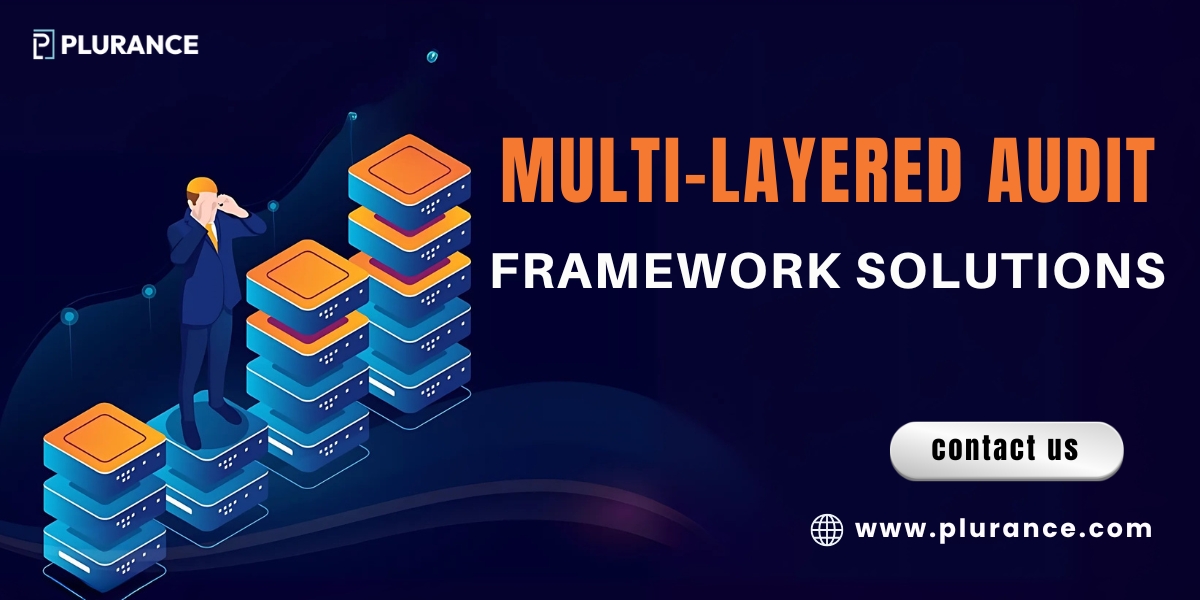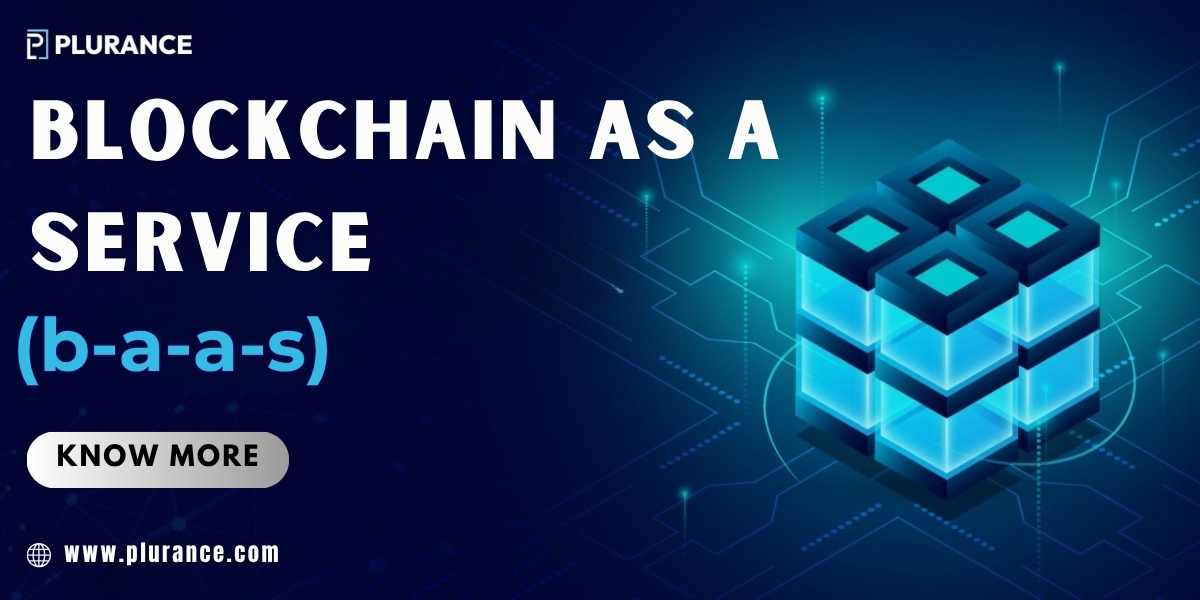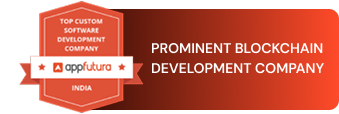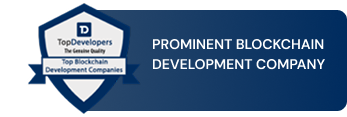Blockchain as a service helps businesses to unlock the full potential of blockchain and enables to build stable blockchain ecosystem without going for complex setup.
Technology is advancing quickly, comprehensively, and extensively in today's world. We are now in the Fourth Industrial Revolution, which is undoubtedly the most remarkable period in human history. The market in blockchain-as-a-service has exploded over the last few years. Compound annual growth rate: 43.4% for one year. The market is expected to grow from $6.91 billion in 2024 to $9.91 billion in 2025.
Rapid technological change has forced companies to quickly adopt new business models like cloud-based deployments and Blockchain-as-a-service, which have accelerated IT transformation and reduced the risk of doing so for companies with non-IT core capabilities.
Due to the advent of blockchain technology, businesses, and startups are now providing Blockchain as a Service (BaaS) to make the adoption process easier for businesses. In this blog, we'll talk about:
Blockchain as a service (BaaS)
BaaS is the term given to third-party cloud-based offerings with which an organization can build and deploy blockchain applications and smart contracts without the need to maintain an in-house blockchain infrastructure. This is driving the democratization of blockchain in terms of allowing businesses to develop apps at an affordable price. BaaS systems are used in a variety of businesses to track payments as well as manage identities and supply networks. Blockchain development services may improve visibility and traceability, resulting in greater company responsibility.
How Blockchain-as-a-Service Functions for Businesses?
Blockchain-as-a-service (BaaS) refers to a service by which organizations are capable of hosting and operating a blockchain network via an outside service provider. The service entails infrastructure, back-end, and installation of all the required blockchain technology for a price. Blockchain-as-a-service governs consumer back-end functions, while providing very basic services to its consumers like hosting, data processing, bandwidth maintenance, and resource management. Sometimes referred to as cloud-based solutions of blockchain, the service makes it easier to implement Distributed Ledger Technology (DLT) with BaaS and decentralized apps by allowing business firms to outsource the difficult technicalities, like consensus algorithms and infrastructure maintenance, to the service provider.
Why Is BaaS Revolutionizing Enterprise Blockchain Integration?
Businesses from a wide range of sectors are looking more closely at the strategic benefits of adopting blockchain technology. Chief executives typically have to put plans for adoption on hold, though, because of the underlying technological complexity, the absence of domain knowledge, and operational overhead cost of establishing, operating, and supporting the Blockchain framework. Businesses can access qualified Blockchain developers, process and governance specialists, and the full cloud infrastructure for development and deployment by selecting the best Blockchain as a Service provider, all without having to worry about startup or overhead expenses.
Additionally, a reputable BaaS partner is often a wealth of real-world knowledge and insight that may be used to strengthen the security of the systems. It greatly reduces the amount of risk that would have to be managed if it had been created internally..
Baas for startups
Baas's commercial potential, particularly for small enterprises, is seen to be most suited for companies that outsource their technology needs and aren't heavily involved in the Blockchain's operation. It makes it possible for these businesses to learn about the technology without having to create their proprietary blockchain.
Numerous industries use Baas system integration for a variety of purposes, including payments, identity management, and supply chain management. Several SME issues, such as the removal of intermediaries and a lack of transparency, are finding that blockchain as a service is the best answer.
Applications of blockchain-as-a-service
BaaS can be implemented in numerous industries. BaaS is optimal for firms accustomed to outsourcing technology procedures and don't want to get involved in complex technicalities.
Smart contracts: Smart contracts make anonymous transactions possible without the necessity of a central agency or an enforcing agent. Blockchain smart contracts can automatically monitor deliveries and payments, reducing costs and keeping things transparent. BaaS can automate payment transfer, whereas blockchain can monitor land title ownership, reducing corruption and fraud, and secrecy by the government.
Personal identity protection: Blockchain as a service provides a tamper-evident, secure database for storing personal information, providing enhanced digital identity protection. Smart contracts provide enhanced privacy and data security, thus appropriate for healthcare-type firms for secure information exchange.
Intellectual property management: Blockchain technology can be utilized to develop decentralized platforms for the management of intellectual property rights, patents, copyrights, and trademarks, establishing ownership and use rights on an immutable ledger, and in game management, to establish asset ownership and digital rights management.
Supply-chain track-and-trace: BaaS firms advance logistics by embracing blockchain-based track-and-trace technology, enhancing the efficiency and transparency of supply chains. Blockchain technology, particularly in the pharmaceutical industry, enhances traceability, consumer trust, and regulatory compliance for illegal drugs.
Scalability solutions: BaaS providers make applications scalable to sustain high user activity through the offering of a scalable platform to handle varying activity and demand levels that an application can encounter.
Blockchain development tools and APIs: BaaS providers make it easier to create blockchain applications by providing developers with software, software development kits (SDKs), and blockchain application programming interfaces (APIs). Some of these include smart contract development, token creation, integration into existing systems, and data storage on the blockchain.
Decentralized finance: BaaS simplifies the deployment of DeFi applications, enabling safe transactions without any intermediation from banks. It enables lending, borrowing, and asset management on a decentralized platform and encourages financial inclusion and trust in financial exchanges in banking business, insurance business, and investment business.
Electronic voting systems: BaaS can be employed to create and implement electronic voting systems more efficiently, securely, and accessible. BaaS facilitates the development of secure, open election processes, which bolster governance and democracy across industries from corporate boardroom elections to polls in government.
Audit features: BaaS providers have been managing blockchain interactions in a structured manner, offering a complete audit trail that facilitates internal audits, regulatory requirements, and forensic requests. Blockchain transparency is guaranteed through its public ledger, enabling users to track transaction information such as sender, receiver, amount, and date, increasing overall transparency.
BaaS for Every Business: Industry-Specific Use Cases
Blockchain is a data management platform, and thus, all the solutions provided in the blockchain sector will be data-centric. All the use cases defined below demonstrate how various companies use blockchain for immunity as well as openness reasons.
Healthcare: Healthcare organizations utilize BaaS platforms to securely keep patient information in a way that only the relevant stakeholders obtain access to it. Such a ledger through decentralization ,provides safe data sharing and consent handling without the need for in-house expertise in blockchain.
FinTech: FinTech blockchain as a service streamlines financial processes, such as AML and KYC checks, with integrity and transparency, and smart cards for quick settlements of funds without the necessity of central authority verification.
Identity Management: BaaS solutions replace identity fraud in finance, government, and e-commerce by offering advanced access management systems, scalability, and security for decentralized identity solutions.
Insurance: BaaS platforms enable insurance companies to utilize smart contracts to authenticate insurance claims based on prior agreements, without human interference and forgery. This reduces claim costs and time for travel insurance, for example, while enabling customer-centric solutions that safeguard the data and maintain transparency.
Real Estate: These platforms place real estate transactions on a BaaS footing by establishing and maintaining a blockchain-based registry of property titles, automating the procedures for escrow payments and title transfer, and reducing the technical burden so that real estate companies can experiment with blockchain without needing a large upfront investment.
Retail and Consumer Goods: BaaS platforms enable retailers to trace counterfeit products utilizing blockchain's ledger to authenticate through QR codes and make the process simpler with existing frameworks.
Automotive: Blockchain as a service supports the fight against counterfeit parts and supply chain synchronization in the automotive sector, keeping end-to-end history for the shipping of parts and keeping production running smoothly with less interruption, thereby making genuine spares traceable.
Time to wind things down
BaaS is promoting widespread blockchain use, which is transforming the digital economy. SMEs and startups must foster innovation and create well-structured value chains. Blockchain potential is maximized when it is used in tandem with cloud computing and the Internet of Things. Blockchain as a Service, delivering a secure, scalable, and affordable platform on which to build decentralized apps, is transforming how businesses implement blockchain technology. At the front of this change is Plurance, a top supplier of Blockchain as a Service, which enables companies to realize the full potential of blockchain. BaaS is essential for keeping ahead in the digital era, facilitating efficiency and innovation across sectors, regardless of your company's size.
Get in touch with our professionals, and will walk you through the full process of using the Blockchain to make your company operations more reliable, effective, and secure.




















 IND
IND














